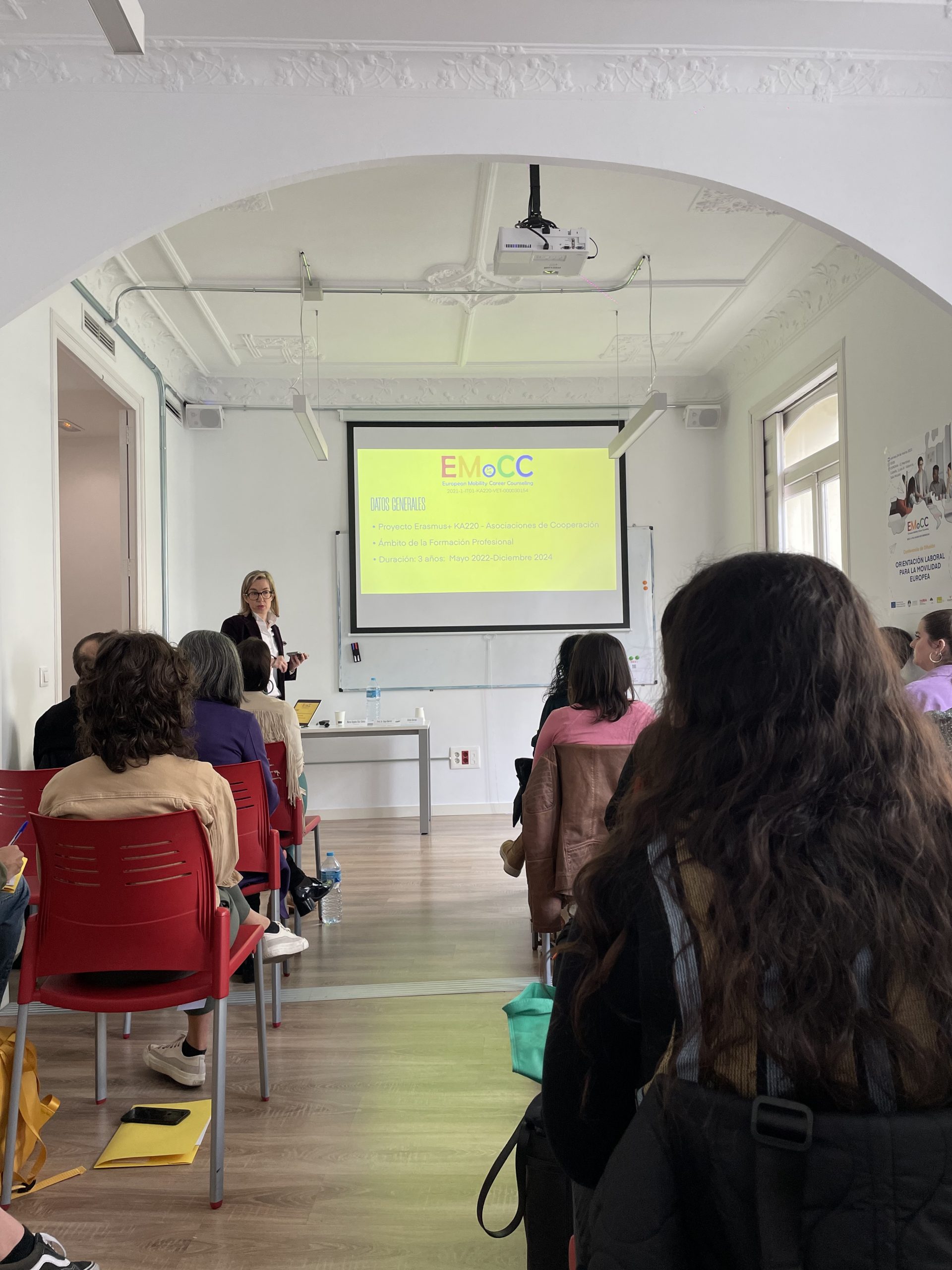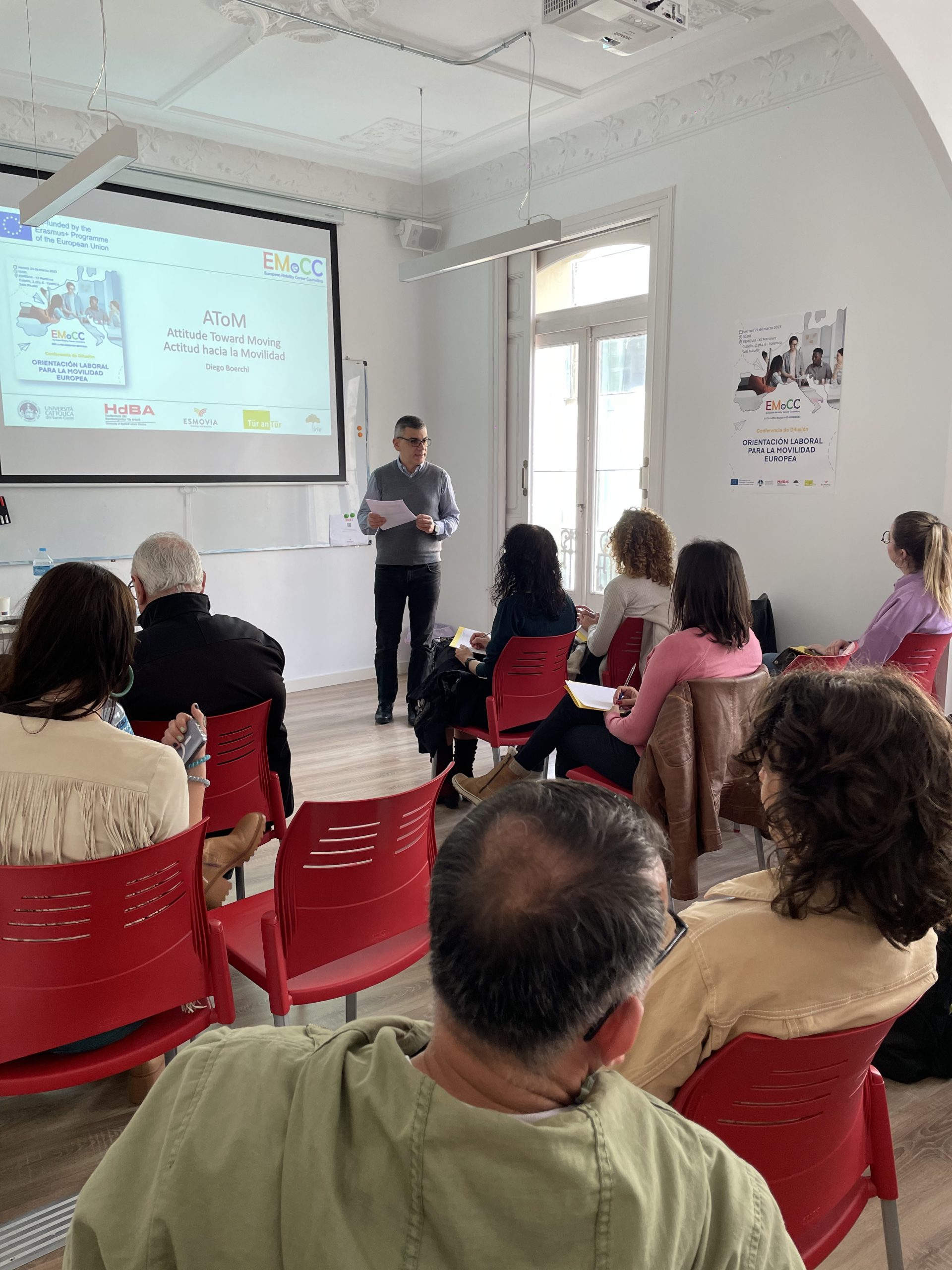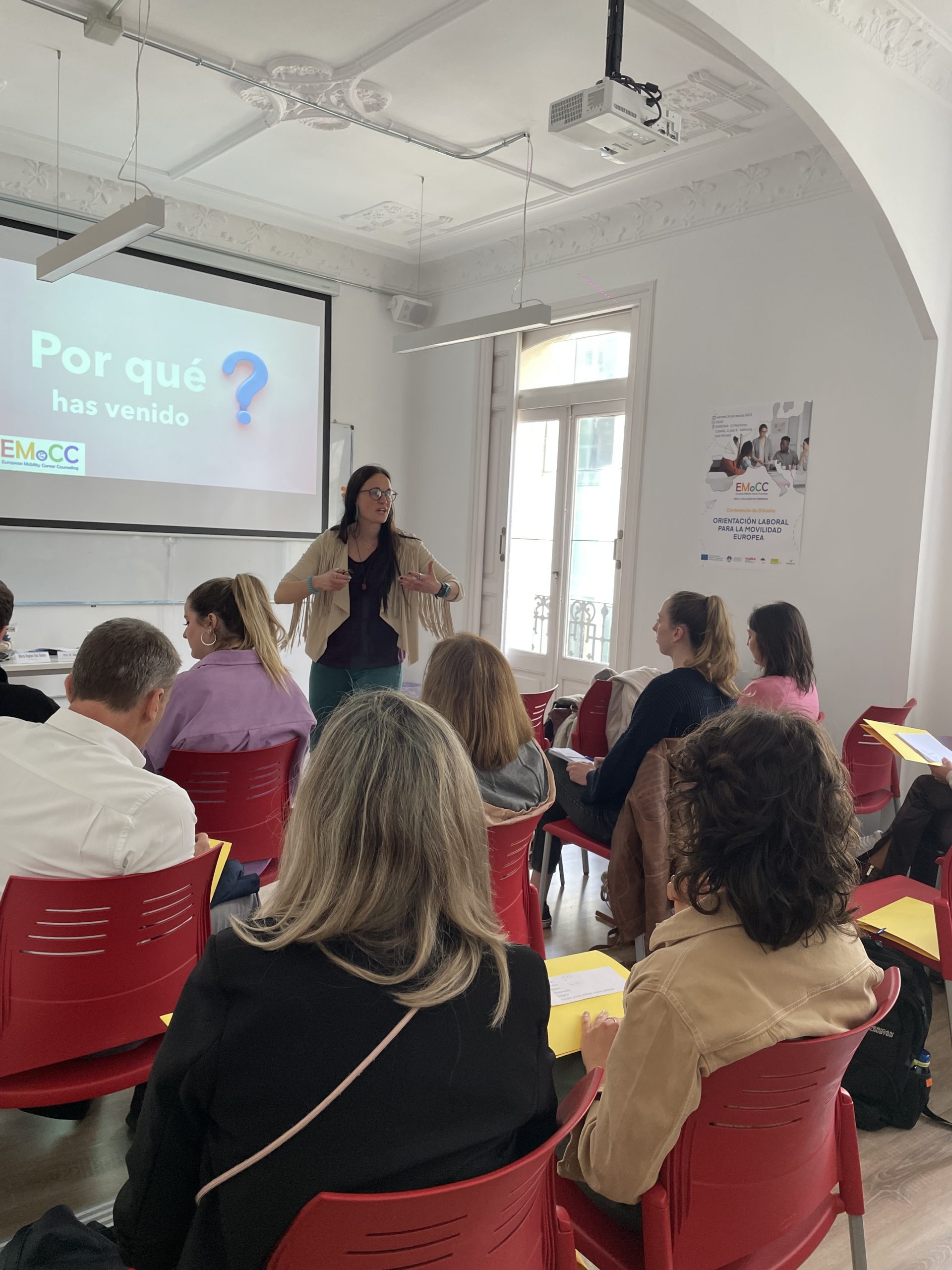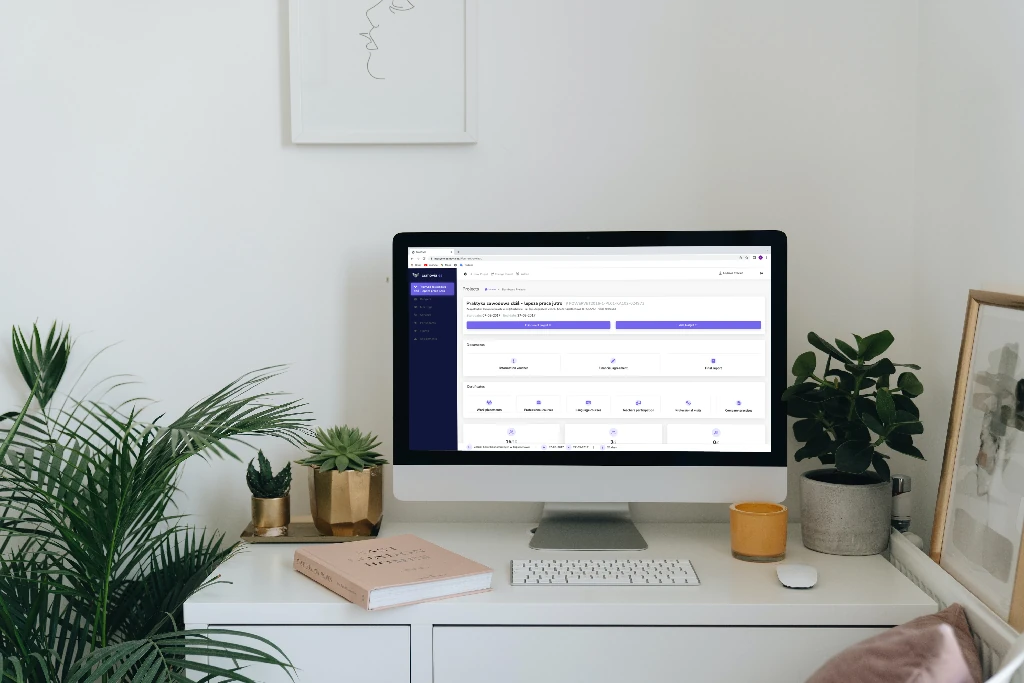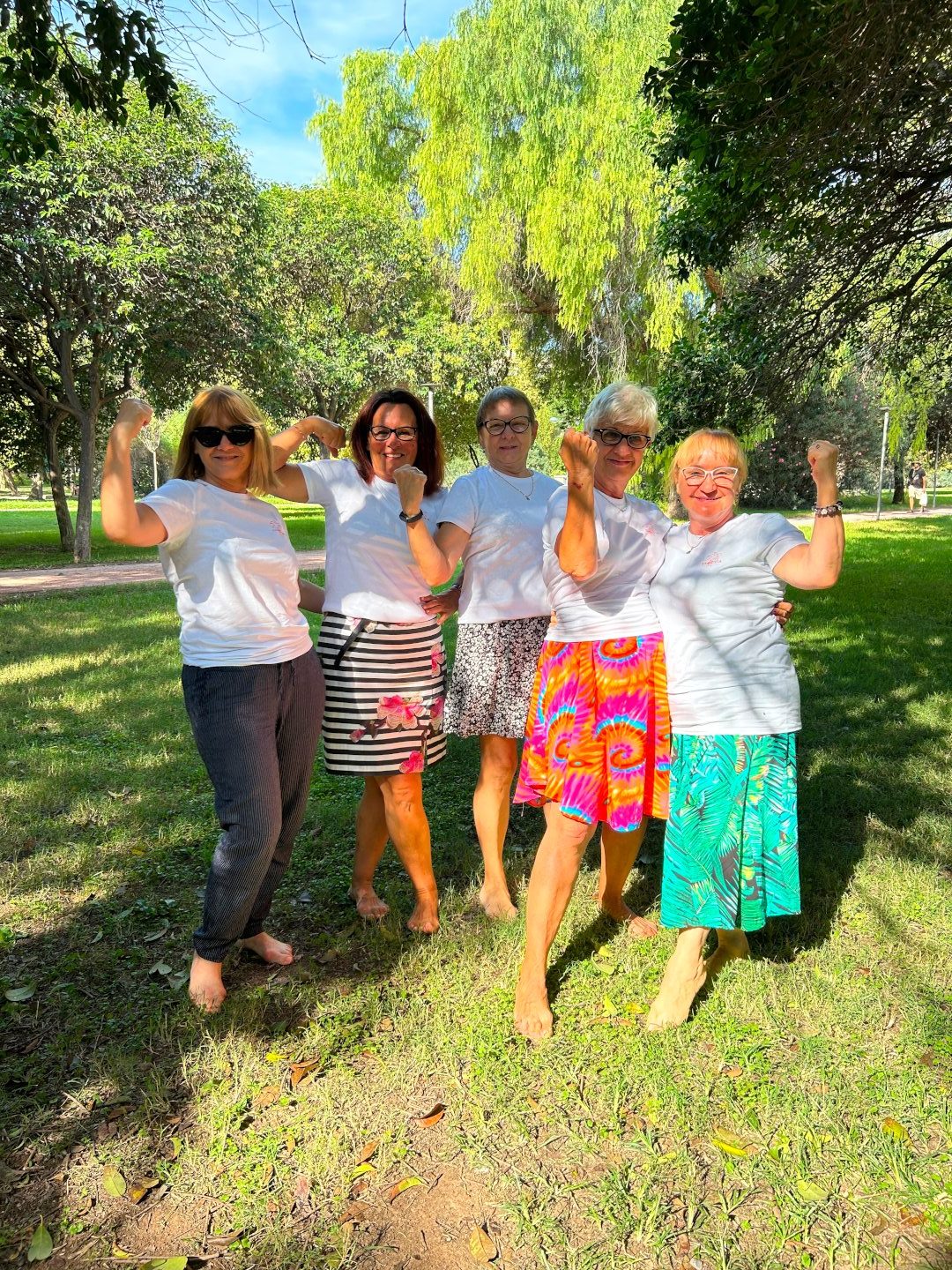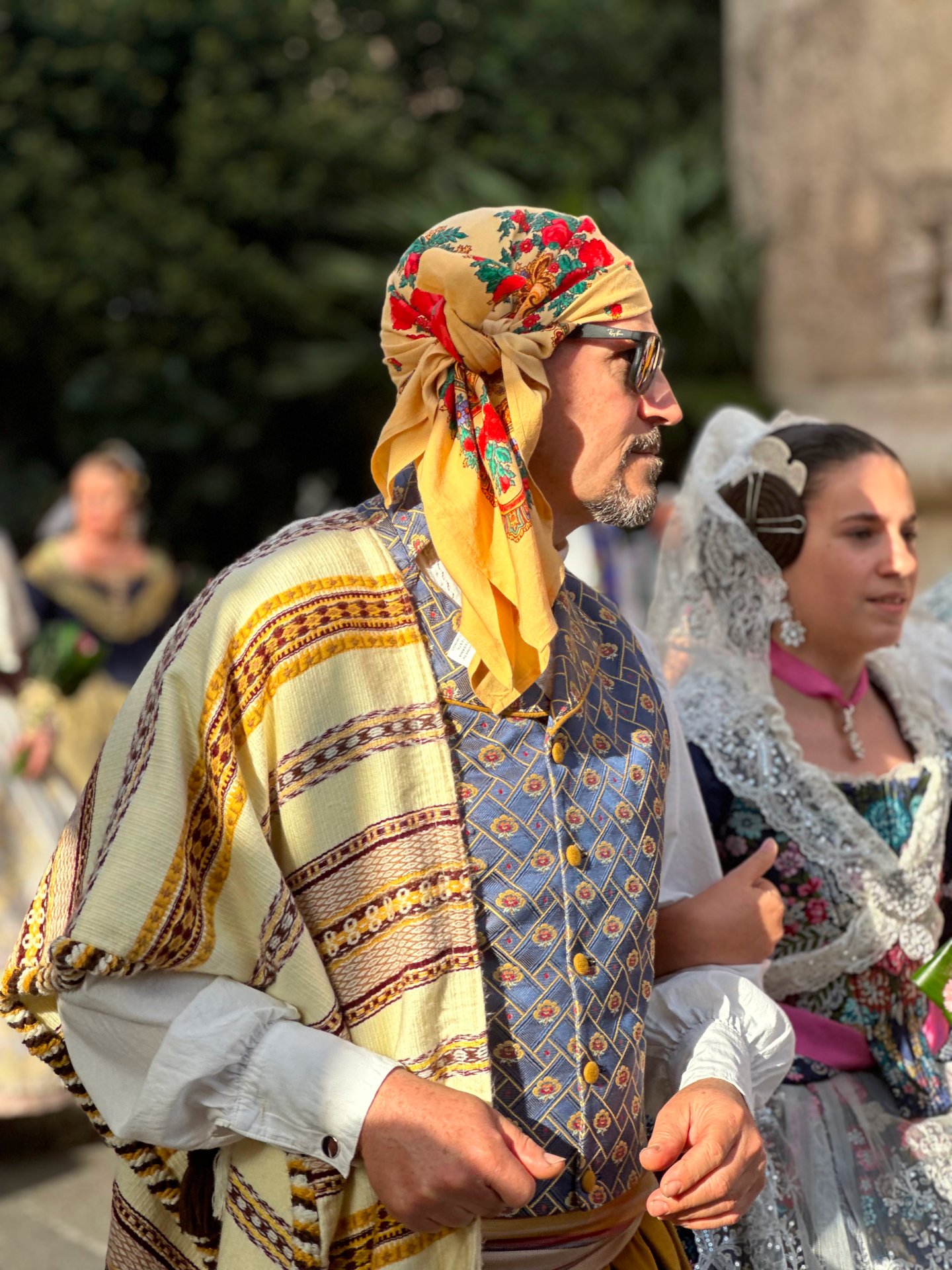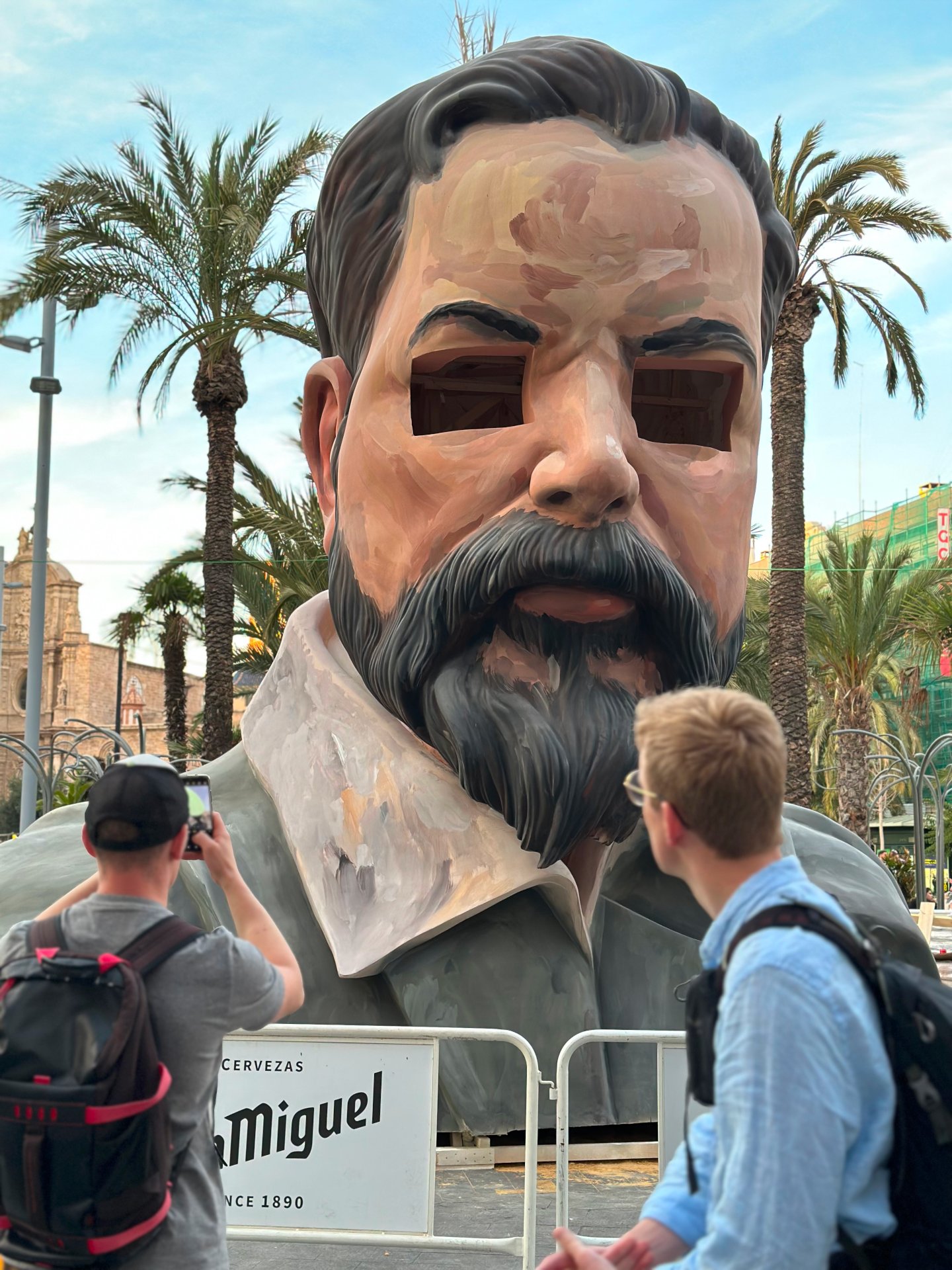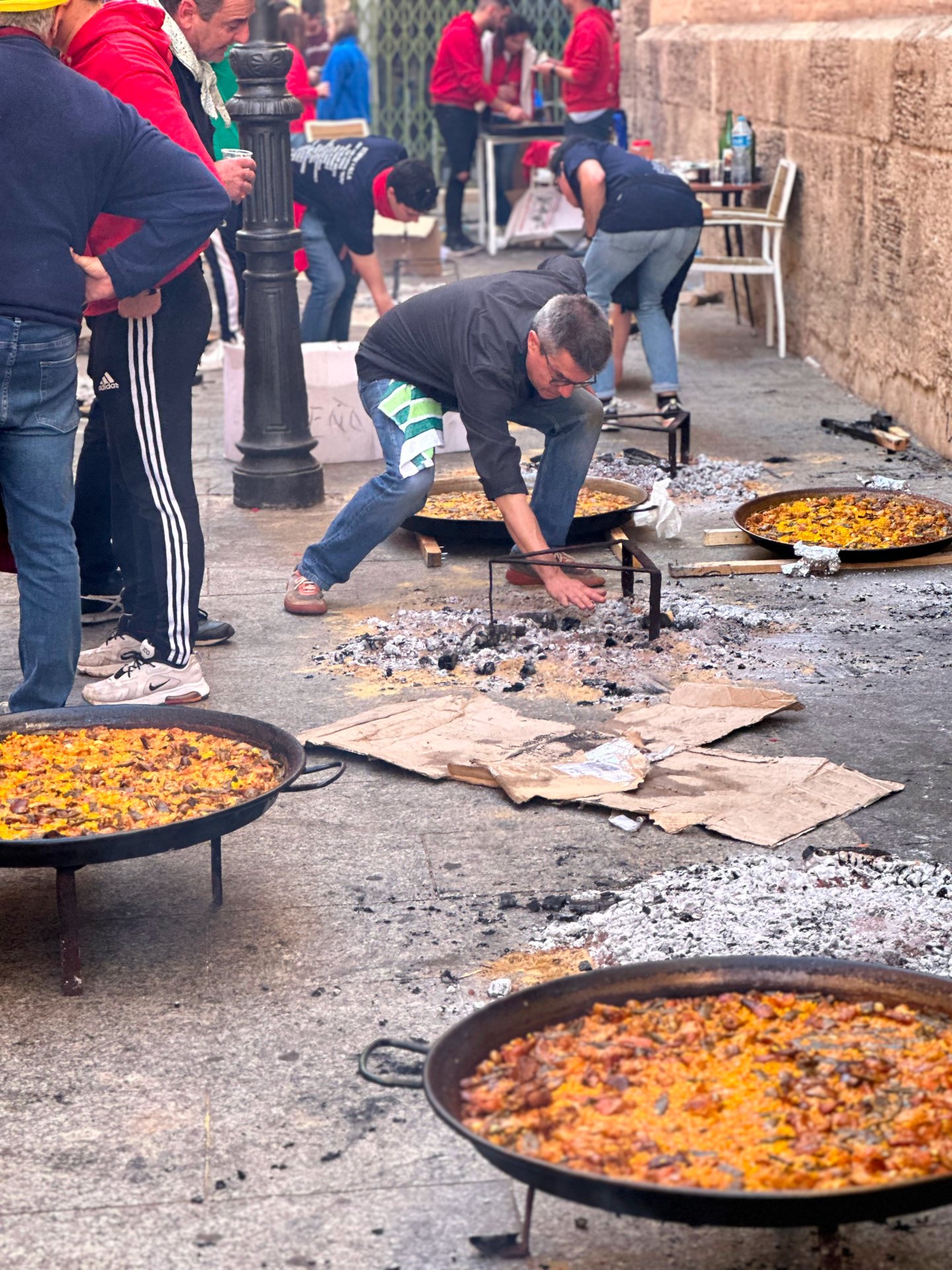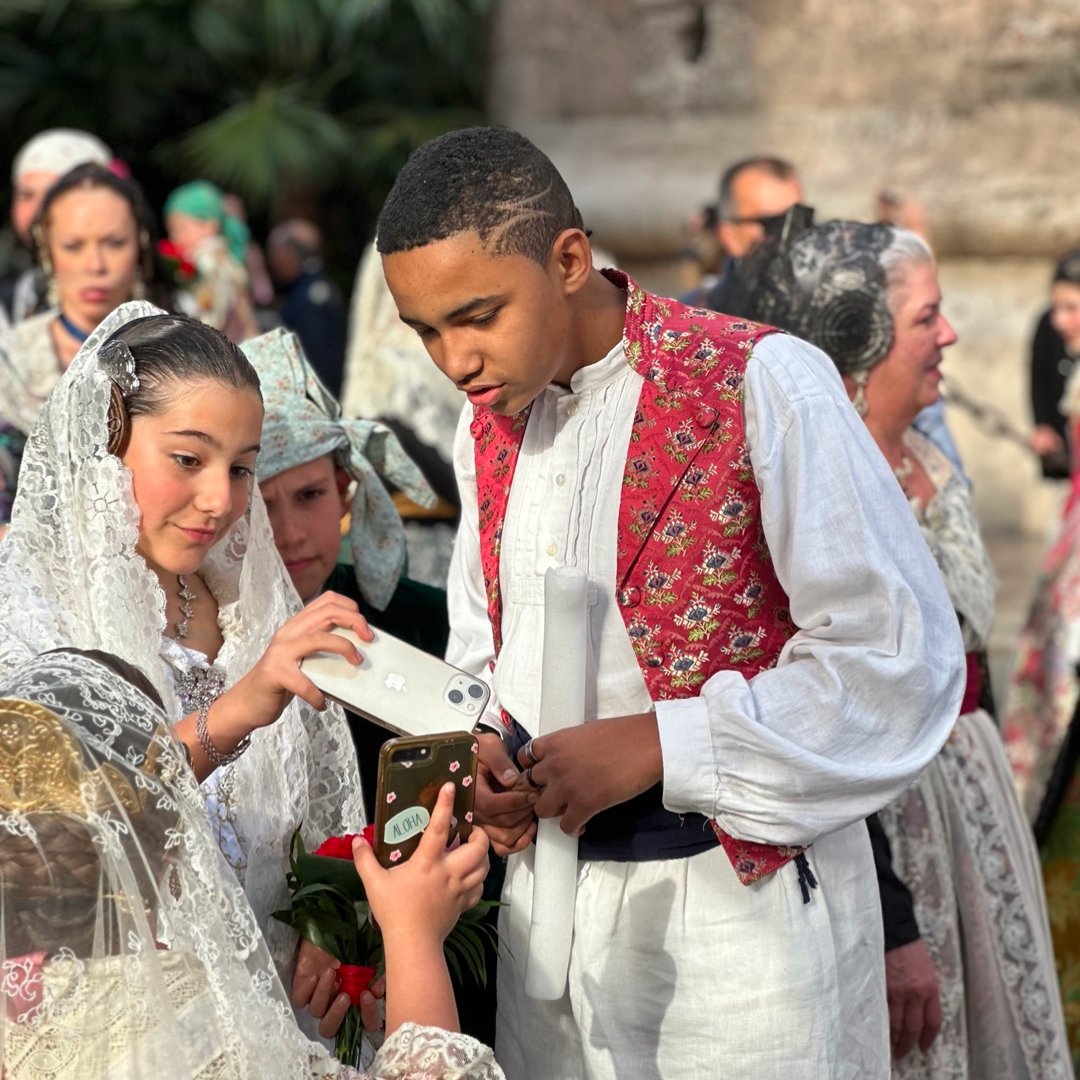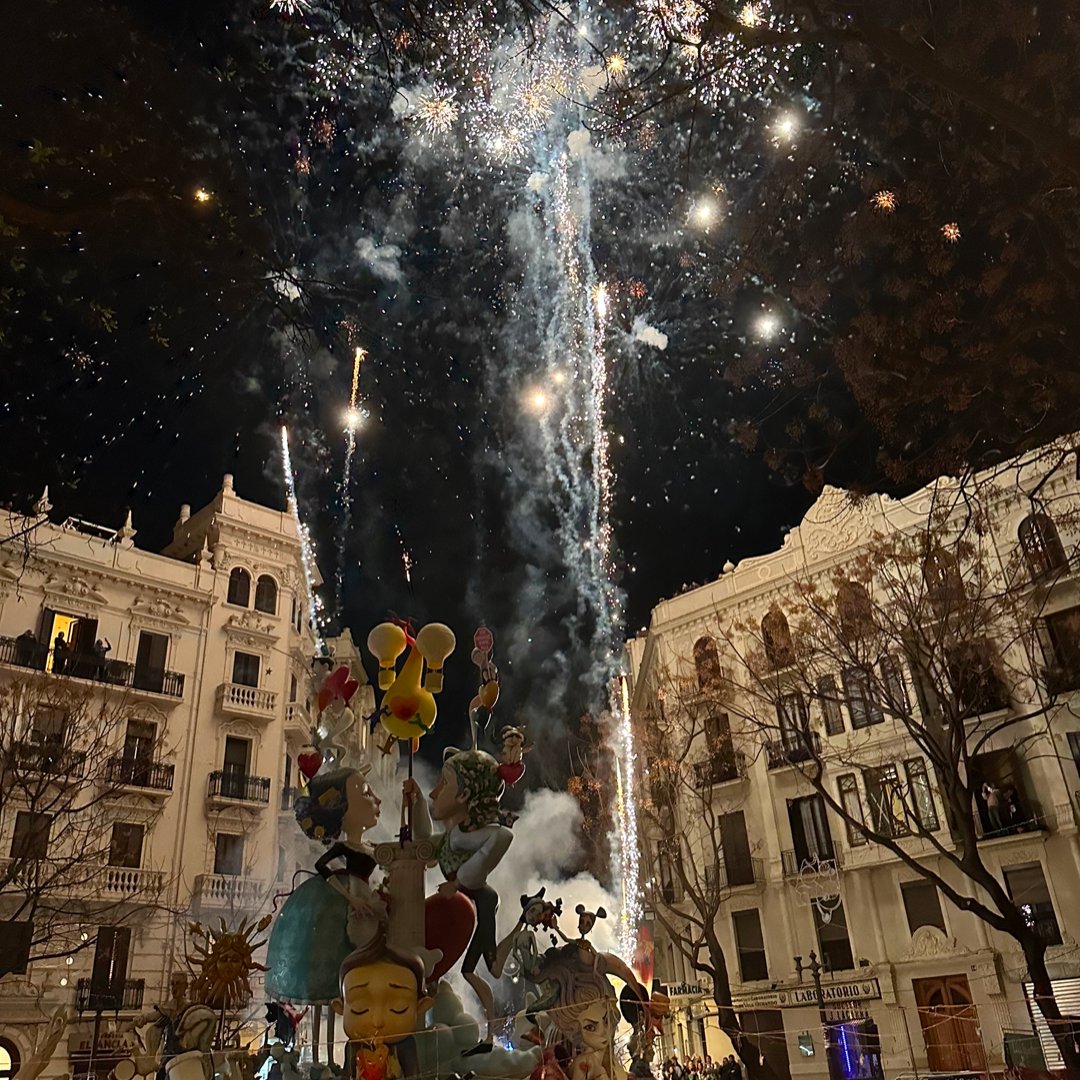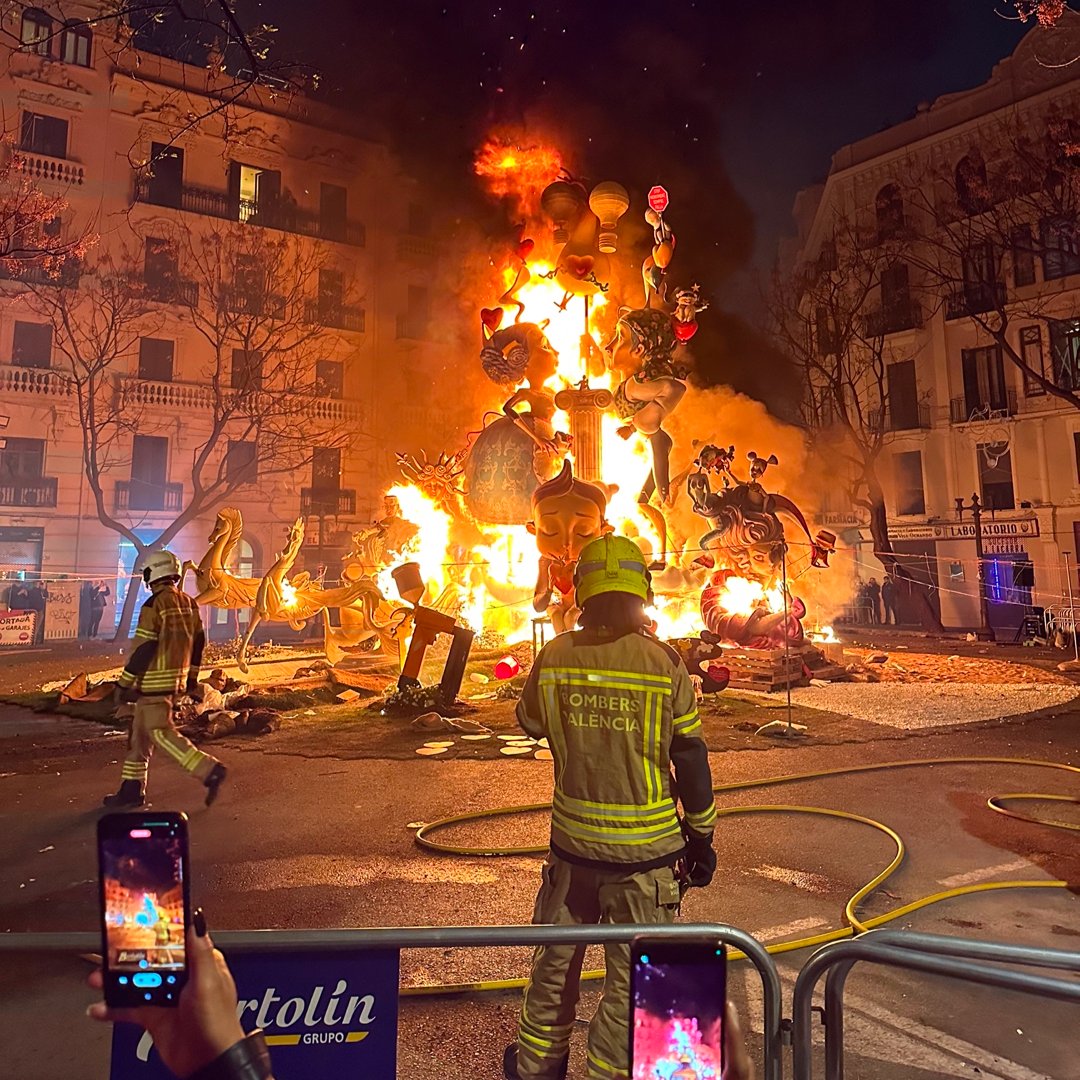On Friday 24th March took place in ESMOVIA premises in Valencia, the first dissemination conference of European Project EMoCC – European Mobility Career Counseling.
The purpose of the conference was to present the EMoCC project to the local community. The conference counted on the presence of 35 coming from European Mobility and Career Counseling sectors in the city and region of Valencia: “Valencia Chamber of commerce”, “LABORA Employment services from Valencia City Council”, “University CEU Cardenal Herrera”, different VET centers as well as associations working with migrants like “Valencia Acoge” and “Plataforma Intercultural” and employment like “Plena Inclusión Comunidad Valenciana”. Also public institutions dealing with refugees like “CAR – Centro de Atención al Refugiado” and international guests from Italian VET institutions were also participating to the meeting.
Presentation of project
The first part of the conference was carried out by Maria Angeles Ruiz Gámez, director of ESMOVIA and was dedicated to the presentation of the whole project, specifying the needs identified, the objectives as well as the activities, results and participants foreseen.
AToM (Attitude Towards Moving) research
A second part was dedicated to share with the attendees the first results of the project, in particular the scales and protocols produced after AToM (Attitude Towards Moving) research. Diego Boerchi, teacher from Universitá Cattolica del Sacro Cuore was in charge of presenting the results and leading a dynamic discussion with the participants.
Practical tools for career counseling
Finally different practical tools of career counseling were presented by Kelsie Kerwin from ESMOVIA and “tested” by participants. A dynamic workshop on mutual empathy was carried and that leaded to a networking session. The idea was to present but also to experiment in a very practical way, career counseling tools that the participants could find in the project result 1: MOOC on Career Counseling.
Closing
The conference concluded with very good feedback from the participants that wanted to be updated on the next phases of the project. Some of the them showed immediate interest in being part of the testing phase of the two MOOC’s foreseen in the project. It also resulted with the acknowledgment of the challenges that represent the different types of final users in counselling processes: people that decide autonomously to move abroad will not need the same counseling that those that were forced to do it. Having that in mind, our work in EMoCC project continues.
